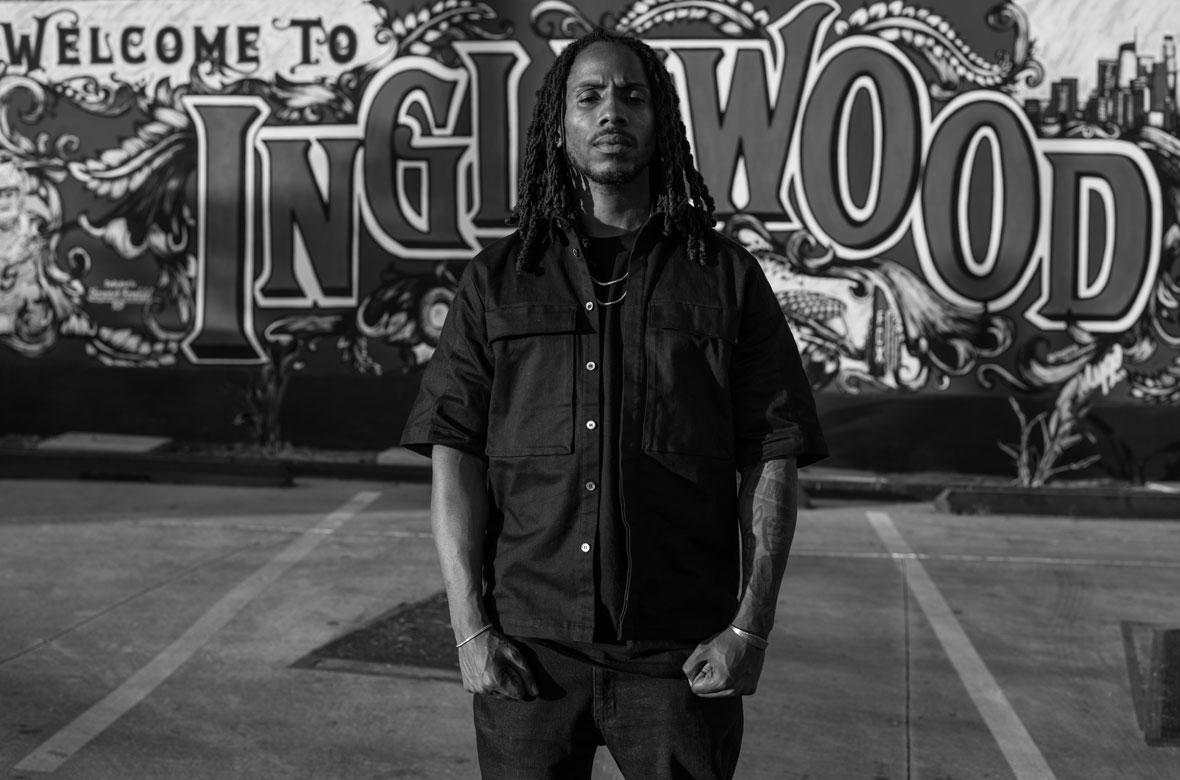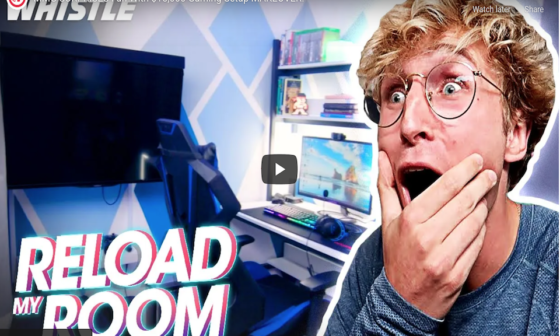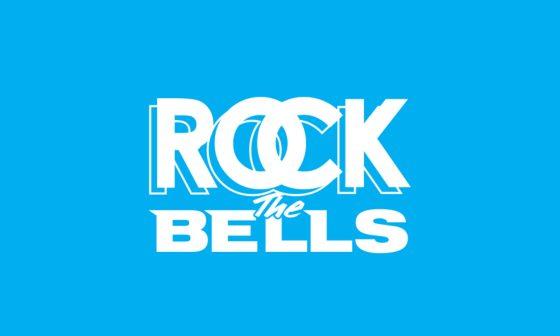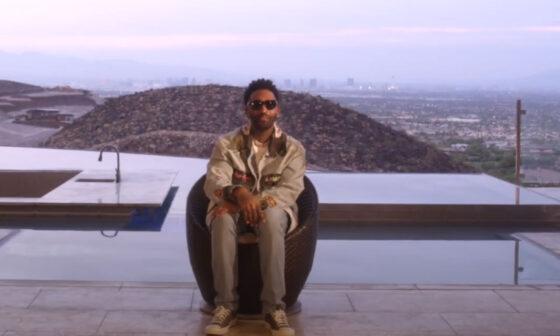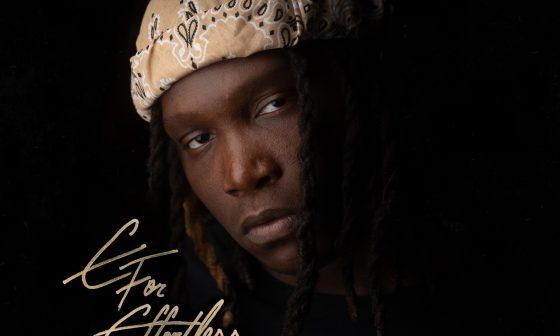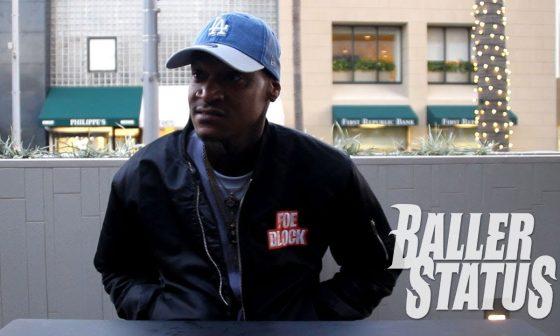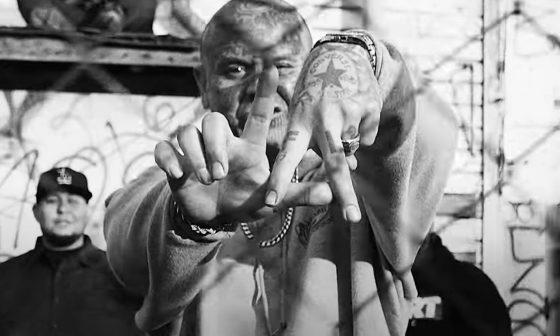After dominating and winning the first season of the 2019 Netflix music competition series, “Rhythm + Flow,” 34-year-old rapper D Smoke has become a household name! Since winning the show, the rapper returned to his home of Inglewood, California, with his $250,000 grand prize to give back to the young people in his community and invest in both himself and his craft. A day after winning the competition, Smoke released his first EP, Inglewood High, which gives an introduction to both his truth and his students’ truths about their beloved hometown. Several months later, he followed up with the release of his incredible debut album Black Habits!
With such a heavy work ethic and busy schedule, we caught up with D Smoke to discuss in-depth topics such as: his upbringing, ties to the industry, his debut album, and more!
As it pertains to your background, your family is very music oriented. With their background in church and gospel music, how did it have a play with your development in your artistry and music?
Man, it was everything. Church — for a lot of people – is the music school that you can afford. That was the playground where we first sang and got a chance to play instruments. We even had a chance to write original songs for church. The type of church that I went to, because it was non-denominational, I rapped in front of the church. It’s like the art academy for people who can’t afford it.
I know your mom is a very influential part of your life, of course. With her being a singer and music instructor, how has she been instrumental in your music?
She started it off. It started off as direct instruction, i.e., standing us around the piano, teaching us music theory, how to find middle C on the piano, what a whole step and a half step was, the difference between scales and cords, and how they played together. She taught us harmonies. It was very intentional. It wasn’t something that we just picked up.
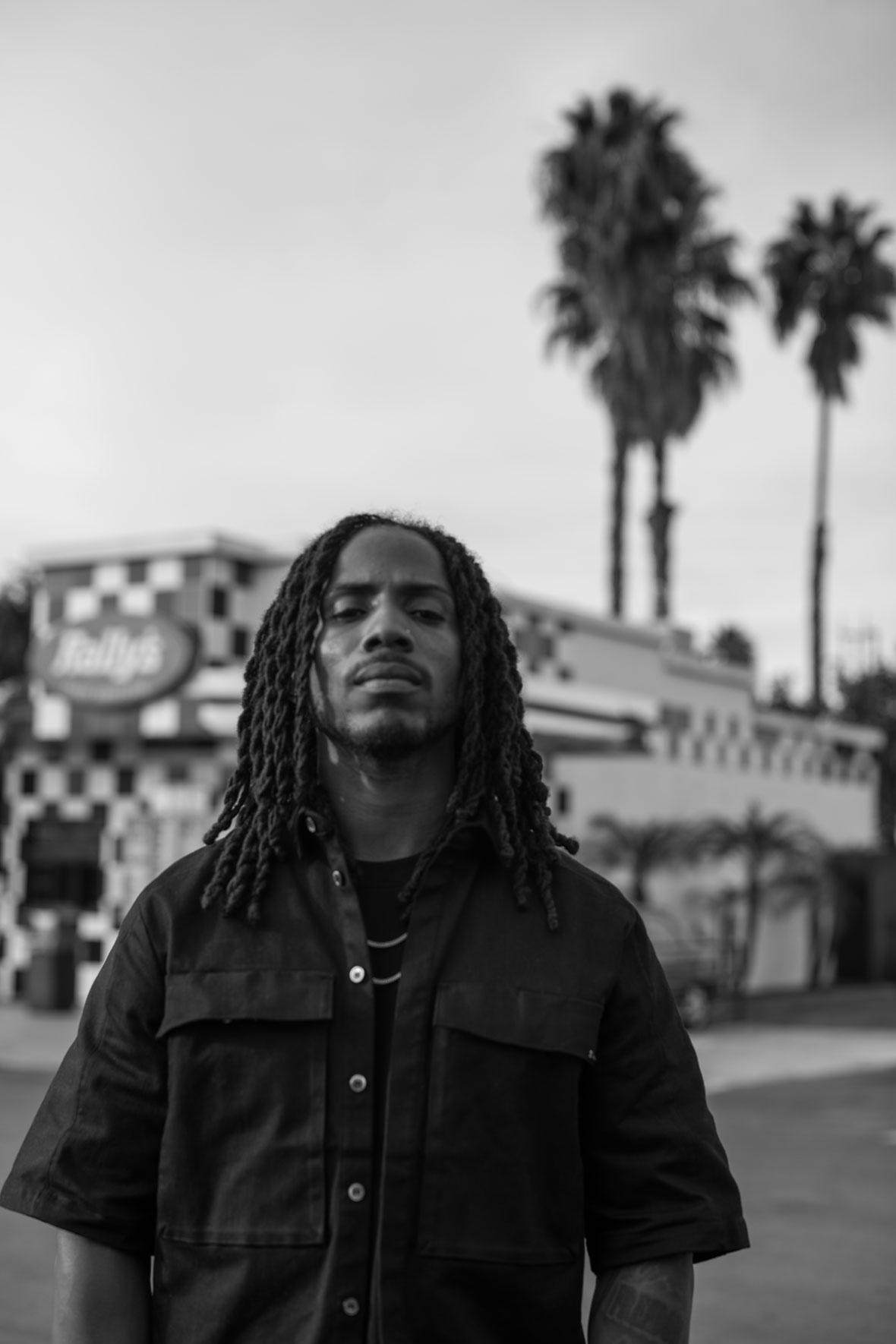
She literally stood us around and taught us day in and day out. And it was something that we grew to enjoy very early! As we got older, it switched from direct instruction, from voice lessons and piano lessons, to her supporting what we wanted to do… Between her and my uncle, them both giving us an entire studio, working equipment at the house, and designating a space in the house for us to be creative as early as 12 years old.
Your brother is SiR, he’s labelmates with Kendrick Lamar, and he’s features on your album. When selecting a song, how do you go about contributing to one another’s music?
It’s just a matter of feeling. If it’s something that he’s like, “Man, I really want to get on this,” he’ll know. Usually, because he has an idea already right when he hears… Other times, he’s like, “Go ahead and finish that! That’s you.” So each of us, have our own creative identity that we’re now very accustomed to and familiar with. We know where it matches. There are songs that we have contributed ideas to, but didn’t necessarily need to feature on it.
Moving back to Rhythm + Flow, when the opportunity came, how’d you grab that?
I was doing a series of freestyle raps called, “Run The Subtitles.” I was writing 1 minute verses to beats that people were already familiar with. I was doing 1 minute music videos and I was filming them myself a lot of times on a tripod or just having my nephew shoot it on my own camera.
That was just to build the buzz for the project that we were already developing. We were already well into having Black Habits together. Since we had a body of work that we really wanted more people to see, than we immediately had; my audience was relatively small at the time.
That was our strategy: Get some attention using social networking and even considering putting marketing dollars behind it so that we could grow our audience. It worked though! We got a lot of prominent shares. Jill Scott caught wind of it and reposted it. Tyrese reposted and then DJ BattleCat (who is a West Coast legend) reposted one. And then someone who knew one of the production assistants told them, “Hey there’s this cat on the West doing something real interesting. He might be dope for the show!” They reached out and said, “You should apply for this and put yourself in the running.”
I heard you mention your Black Habits album and it has some great features like Snoop Dogg, Jill Scott, and even newer artists such as Ari Lennox and your brother (SiR). When it came down to these features, how did you go about choosing who you wanted on your project?
What’s so funny is, people make mention of the features like it’s a big deal, but to me, it was easier to figure out who not to have featured on there (not that we weren’t trying to fool with anybody). However, for this project, intentionally, we wanted to make sure there was an identity to it. After Rhythm + Flow (mind you), we dropped Inglewood High already. So now, our access to rappers and singer expanded by then, so we could’ve had features everywhere.
We just wanted the features that made sense. For Snoop, in particular, we shared a dope moment on the show and I think the world wanted to see the collaboration as a result of that. And I personally wanted to tell the full side of that story and represent that musically. I think some people misunderstood that as some “gang sh*t” and it wasn’t just “gang sh*t,” it was LA sh*t. As for Jill Scott, my family has worked with her. She brought my family into the studio when she was working on her album, Woman (that SiR wrote 4 songs on). There was already an established relationship and it was something I’d been wanting to do.
The song for Ari Lennox I had written (the first part of it) a year prior. I just knew that it needed a woman to do her thing on there. So, when I reached out to her, I said, “Hey look, I have something for us,” and she got back.
Usually today’s projects are super short and they do not really have as much substance as seen in the past. Black Habits delivers the complete opposite! How important was it for you to develop this classic appeal to your project?
I just come from a different time. I am 34 years old, so I listen to music that wasn’t made based on these rules of how the new age listener works. My project has nothing to do with what’s common in the streaming world. It’s based on the song, giving it life, giving it movement, and giving it growth throughout the song; Not just putting out a loop and putting words over it and figuring out what’s catchy. I just wanted it to be able to exist at any time.
If it came out 10 years, 20 years prior, I would like to believe that it would still have as much of a fanbase (if not more) because of the audience; Or 20 years later, people will still be listening to it and sharing it with people as a body of work that influenced them. That was the goal.
The essence of Black Habits is… utterly black. It tells not only your story, but stories of others that can relate and the universal theme of blackness and celebrating it. How important is that aspect of community being represented in your music?
It’s absolutely important. I think black people have a unique challenge in today’s world just to intentionally shape how we view ourselves. Some people can passively accept the views that are imposed on them and it won’t necessarily be negative. There are so many positive stereotypes that work for other groups of people. And a lot of times, the things that we deal with… we might have a stereotype of us being physically athletic or creatively gifted. But, a lot times that does not work for so many of us.
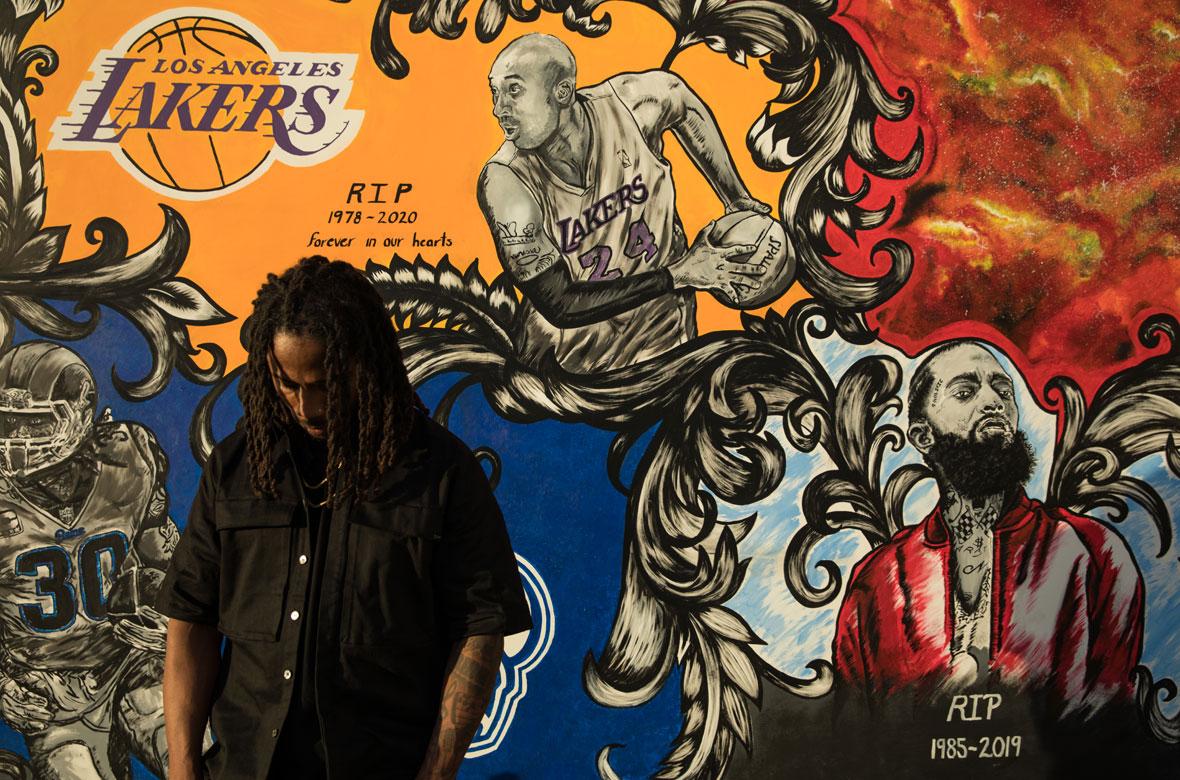
So we’re left to figure out our own identity. Celebrating blackness and multiple facets are super important to do in art. Most of my perspective was gained as a teacher. I knew what negative self-images many of the students were wrestling with and I had to try to counteract through mentorship. So, using music as a tool to address those issues of positive self-image, identity, and all those things.
A lot of your music has this Spanish tone to it with you rapping lyrics in Spanish. How did that come about with you speaking in Spanish?
I first started learning Spanish in high school, and that was when Inglewood was just over half Latino and just under half black. Literally 1 or 2 students that weren’t black were Latino. I had plenty of friends that spoke it. I wanted to learn it as early as when I was 10 years old. My friends would teach me a couple of words a day and I wouldn’t get anywhere. It was when I went to college (UCLA) that I really started to master it and I ended up majoring in Spanish. It was always something that I wanted to do just because it was everywhere! I wasn’t going to be the one who didn’t pick it up when it’s all around. A lot of my friends and my loved ones were Latino, so I was super passionate about picking it up.
I make no mistake about me not being of Black descent. That’s why on a project called Black Habits I can still touch bases with that because I am both black, but I’m also from Inglewood, a city that’s super Black and Latino, in the same way that almost all major cities are: New York, Miami, San Antonio, New Mexico, Arizona, everywhere! That’s why I learned it and incorporated it into my music.
The album showcases different layers, genres, and appeals. Are there any genres you would like to explore as you continue to create music?
I don’t want to say genres so to speak, because I just want to be creative when I approach it. I do want to dive more into the Spanish world, collaborate with some of those artists, but I want to be involved with the production as well. So, we’re not limiting the sound to just the trends of a genre. I always want to contribute a new sound to what music is doing.
Speaking of production, I watched the video for “Black Habits I.” It already has over 4 million views and just dropped month ago. How did you generate the idea and concept for the video?
Sometimes ideas come to me in stages. The first thing I imagined when coming up with the treatment (and it’s a collaborative work between me and the director, child), is me walking off a plantation and hopping right into a low rider or just a modern car, old school whip on some thangs. My idea when I wrote the treatment was called, “When Worlds Collide.” With the blessing of these other slaves, and also, the ritual that we showcase in the video is a Candomblé ritual, which is where Catholic culture which was introduced to the slaves in Brazil meets Yoruba Tradition.
There was always this idea of taking what you’re given and incorporating that with what your culture has to offer… So, just showcasing that and them giving me their blessing, so to speak and me taking it to another world. I like to come with some type of idea and let the directors that I work with build off that; they are gifted.
How important was it to put your father on, “Like My Daddy?”
Oh, it super important! You have the whole story, whereas I can’t do what I did earlier in the project which is tell his shortcomings and his flaws without celebrating what having him back in the house meant to the family. Early on, all of the strength that we had to have as kids, could have easily been turned to misdirected aggression as grown men, had it not been for him in the house. I also told a story early on of him introducing my mother to drugs and being incarcerated. But, that’s not where it ended. I had to tell that full story, so it was super vital.
For the future, is there anyone in your radar that you would like to work with this year or in future years?
Aw man, it’s a couple of people that we are going to work with. I don’t necessarily want to give it away, but we’re going to put some shit out. We’re going to tap in with the G’s on the West Coast (the real ones). I feel like Rhythm + Flow connected me with the global community and I think I have a unique opportunity to introduce the global community to the local community who’re also doing it big. A lot of these artists built their audience from scratch, I somewhat inherited one. I’ve helped others build their audience from scratch but mine came about rapidly. I think tapping in with the culture is more important than trying to get on with people who can give me a huge look or something.
You worked with the likes of Usher, Babyface, Missy Elliott, and even Michael Jackson! Now at 34, how do those various industry experiences help you now with making your own music?
I think it gives me options on how to approach a song. I’m not solely influenced by what’s happening right now. The places I can go musically are vast. I can go into different modes. I always approach it both from a composition standpoint, production standpoint, and then a writer’s standpoint.
For that person looking to you as inspiration & they want to do exactly what you’re doing, what advice would you give to them?
I would say, don’t try to do exactly what I’m doing. Do what’s on your heart, do what you feel like is supposed to be done when you wake up and have that idea. Listen for divine inspiration because everybody gets it. If your process begins with what somebody else is doing, you’re already setting yourself up for failure.
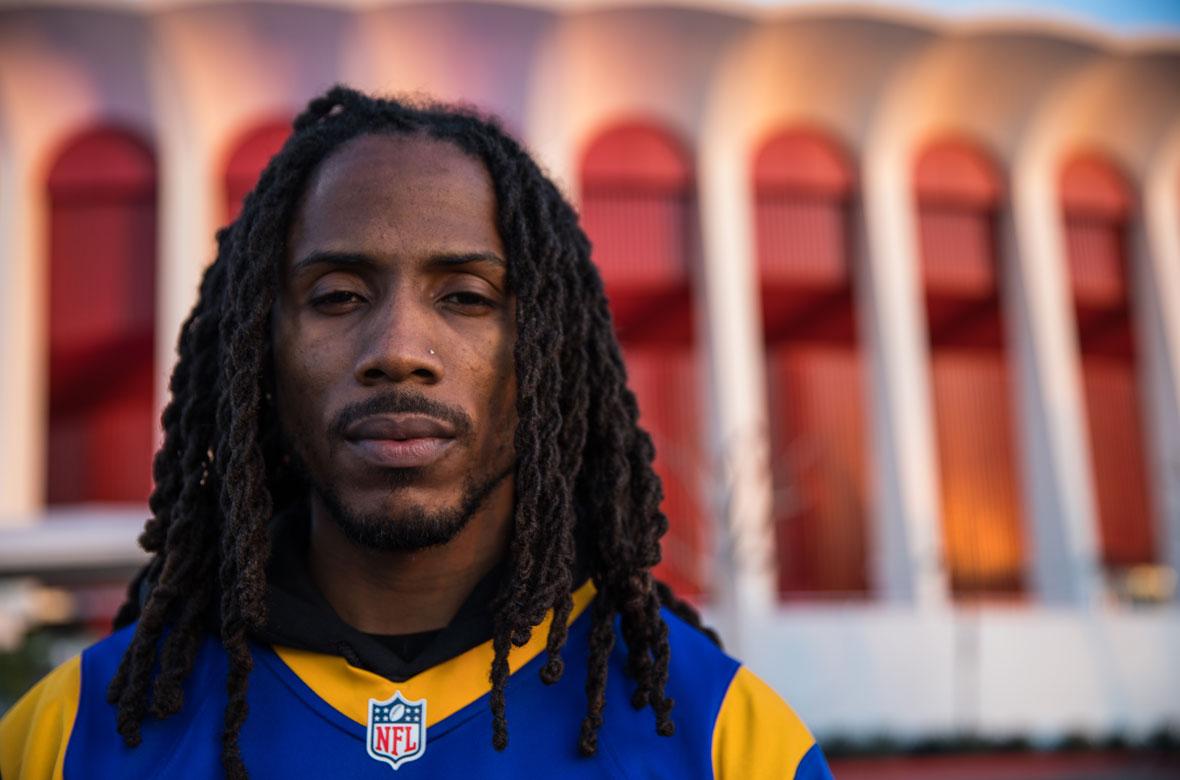
As far as what’s next for you, what can we expect from D Smoke?
Once the hysteria dies down, there certainly is tour. They’re a lot of collaborations coming. Some of them may be independent… maybe something we put out for the fans. You know, we’re just going to continue to tell our story – my family’s story, through music, and other creative projects. We may answer the call to see me in film and television. So as we branch out, after we touch certain bases musically (because I still feel like I have so much to do musically), we’ll dabble in those ideas and opportunities that are already on the table.
